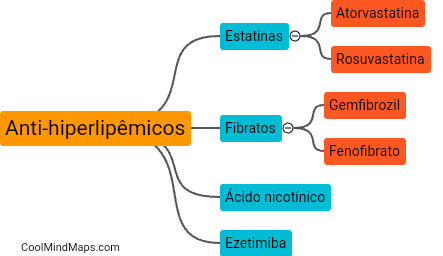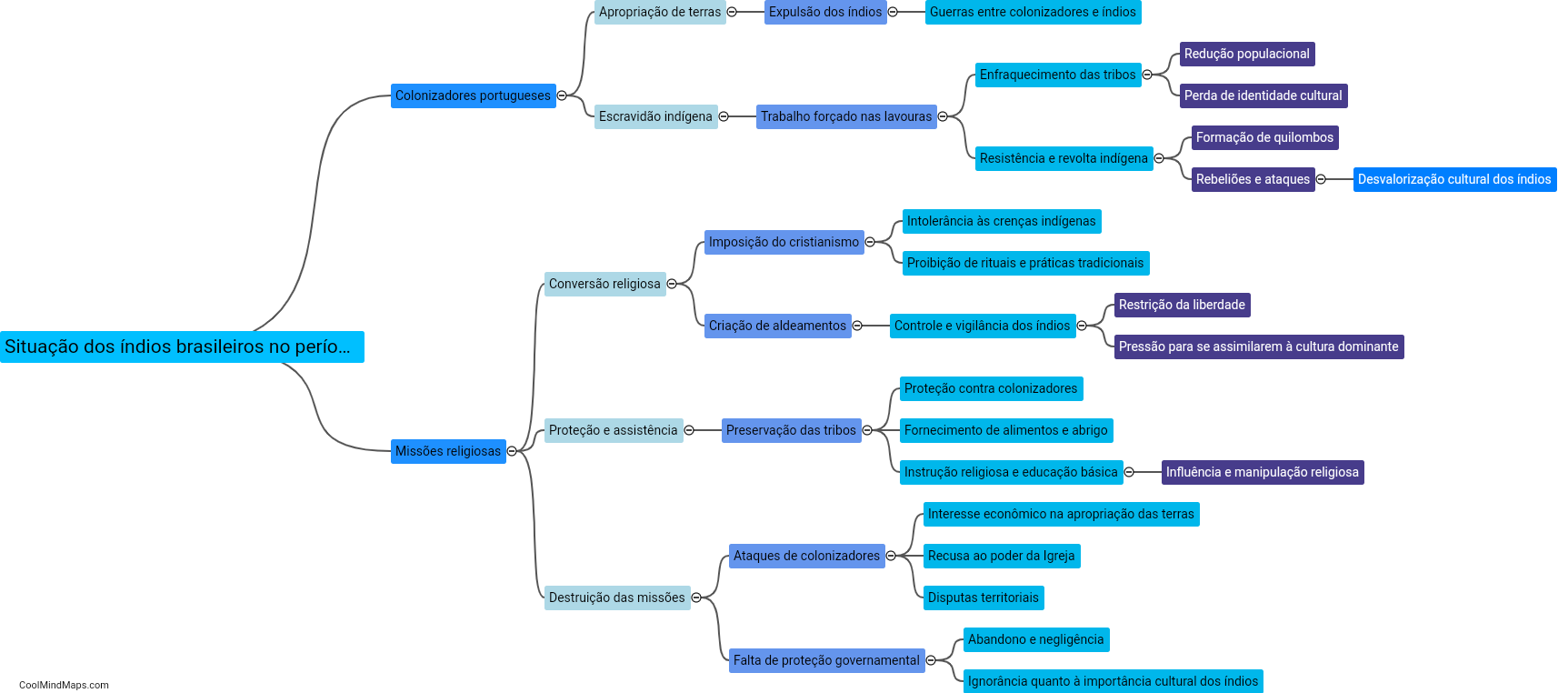What are anti-hiperlipêmicos?
Anti-hiperlipêmicos, also commonly referred to as antihyperlipidemics, are a class of medications used to lower high levels of lipids or fats in the blood. This includes reducing levels of low-density lipoprotein (LDL) cholesterol, commonly known as "bad" cholesterol, as well as triglycerides, and increasing levels of high-density lipoprotein (HDL) cholesterol, often termed as "good" cholesterol. These medications are typically prescribed to individuals with conditions such as high cholesterol, familial hypercholesterolemia, and other lipid disorders that increase the risk of cardiovascular diseases. By effectively managing lipid levels, anti-hiperlipêmicos play a crucial role in preventing atherosclerosis, heart attacks, and strokes, thus promoting better overall cardiovascular health.

This mind map was published on 10 August 2023 and has been viewed 246 times.











